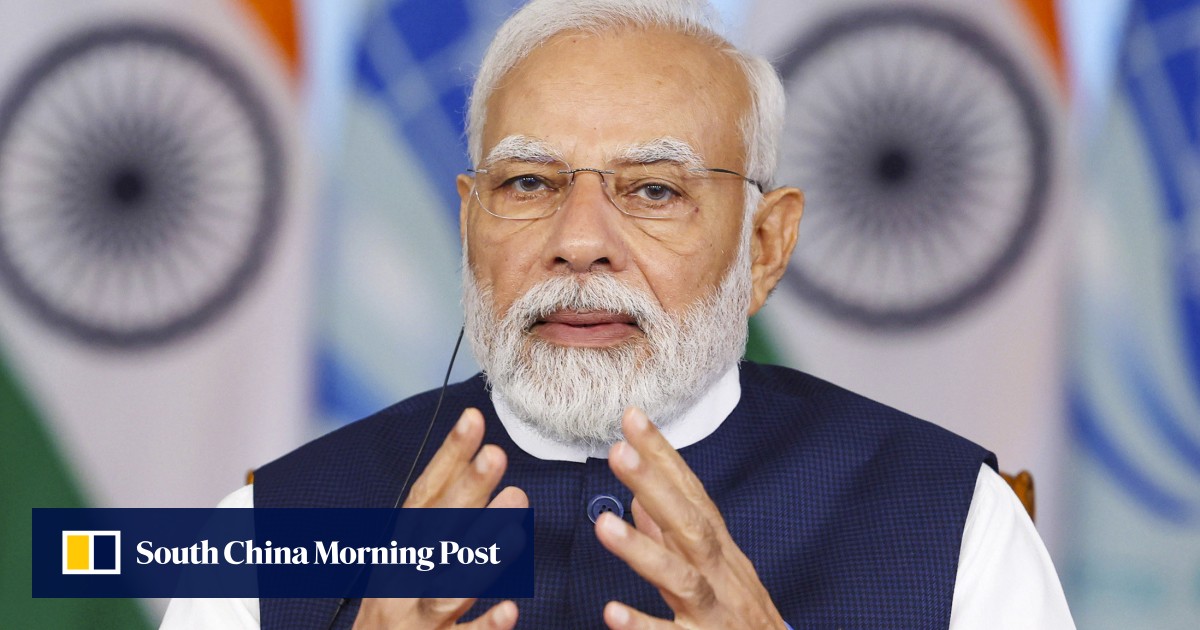Dalit
ELITE MEMBER

- Joined
- Mar 16, 2012
- Messages
- 23,622
- Reaction score
- -12
- Country
- Location
View attachment 938068
- At the SCO summit, India refuses to endorse statements promoting China’s Belt and Road Initiative
- India is more concerned with ‘divergent priorities’. ‘They’ve always said it was a bad idea,’ analyst says
India’s leader used the Shanghai Cooperation Organisation summit to press for more cooperation against regional terrorism. Photo: EPA-EFE
Despite a pitch from Chinese President Xi Jinping, India refused to back his signature Belt and Road Initiative during a summit chaired by India, a move experts had expected.
During the virtual Shanghai Cooperation Organisation (SCO) summit on Tuesday, Xi said the infrastructure project would facilitate regional cooperation, and trade and investment, and he called for better coordination in Belt and Road projects.
In a joint declaration, India, which has just completed its one-year presidency of the SCO, did not support the belt and road strategy.
“The statement has been like this since India joined SCO as a full member in 2017. India does not quite agree with endorsing China’s [Belt and Road
Initiative] in the joint declaration, and it has its own version of infrastructure development projects. China has expected the lack of backing from India,” said Zhu Yongbiao, a professor at Lanzhou University’s School of Politics and International Relations.
“Instead, the declaration showed the SCO is about seeking common ground while preserving differences,” he said.
Raffaello Pantucci, a senior fellow at the International Centre for Political Violence and Terrorism Research at Nanyang Technological University in Singapore, said India had a practical reason for withholding its endorsement.
“The Belt and Road goes through contested territory in Kashmir with Pakistan … There’s a sort of practical dilemma always for the Indians to try to engage with the SCO with the Belt and Road Initiative. They’ve always been very reticent. They’ve always said it was a bad idea,” said Pantucci.
In his summit speech, Indian Prime Minister Narendra Modi stressed the need for cooperation to fight regional terrorism, underlining a divergence from Beijing and Moscow.
“Terrorism has become a threat to regional and global peace … We have to fight together against terrorism that may be in any form and any manifestation,” Modi said.
Others made more concrete appeals. Kazakh President Kassym-Jomart Tokayev urged more energy cooperation and said SCO member states should set up an investment fund. Xi repeated a call to establish an SCO Development Bank.
Russian President Vladimir Putin suggested “payment infrastructures” be set up to boost regional economic integration and build an “independent financial structure”.
Both China and Russia called for wider use of national currencies in trade between SCO members, in a push for deeper economic integration within the bloc.
But Pantucci said India has other options.
“I don’t think they feel the same sort of position. They’ve got lots of Western powers that are eager to sort of engage with them and develop free trade areas and free trade relationships,” he said.
“There was no real concurrence on what everyone wanted to do and achieve … [and that became] a question of divergent priorities.”
As Modi spoke about the terrorist threats faced by the nation, he said “some countries use cross-border terrorism as an instrument of their policies and provide shelter to terrorists”.
“SCO must not hesitate to criticise countries that support cross-border terrorism as part of state policy. There should be no place for double standards on such serious matters,” Modi said.
While Pakistan was not mentioned directly, Li Hongmei, a research fellow at the Shanghai Institutes for International Studies, said it was an obvious reference to India’s neighbour, which Modi wanted the SCO to jointly pressure.
China hopes the SCO will become a platform for both security and economic cooperation, but India remains more concerned about terrorism, which has worsened since the Taliban took over Afghanistan, Li said.
“Regional connectivity was also mentioned in Modi’s speech, [but] this is a secondary concern or secondary goal of India, and counterterrorism is India’s number one goal in SCO,” she said, adding that the Indian economy has shown signs of “desinicisation” since the deadly border clash with Chinese troops in the Galwan Valley in 2020.
Despite lingering tensions from the border dispute, Pantucci said New Delhi remained active in the regional bloc and has led several working groups, including those focused on the digital economy.
“But it is also very clear that there is clearly a reticence from an Indian perspective to get too deeply enmeshed, because of their hostile relationship with China and [that] they like to project a kind of more agnostic view and the SCO is a good example in their minds of how they do that,” he said.

At China-led summit, India refuses to back Beijing’s infrastructure vision
At the SCO summit in Shanghai, India and Iran refuse to endorse statements promoting China’s Belt and Road Initiativewww.scmp.com
LOL India can cry all it likes. It won't get Kashmir back. A two front war is a reality.

